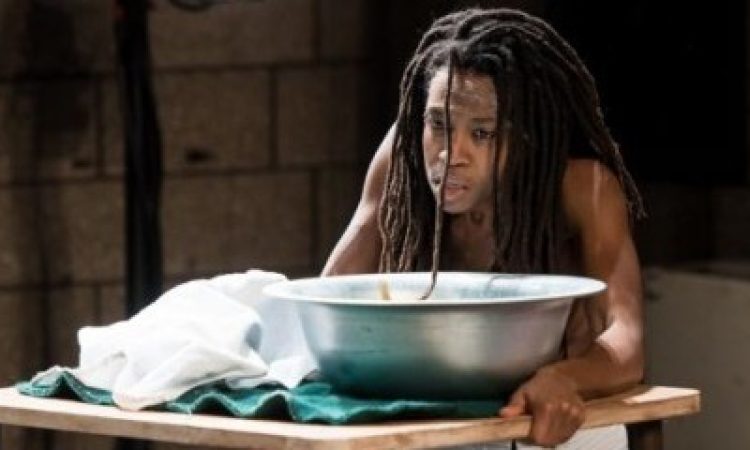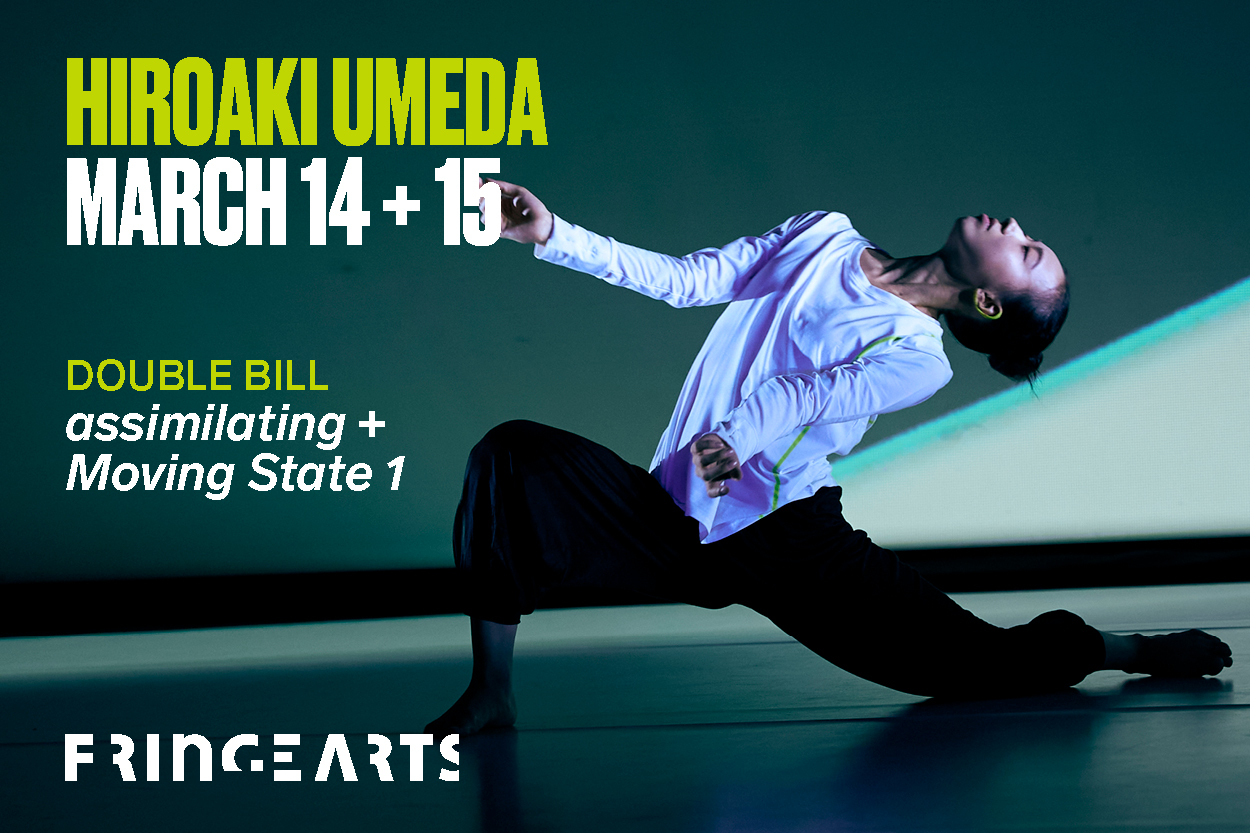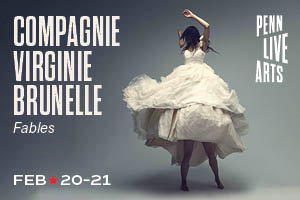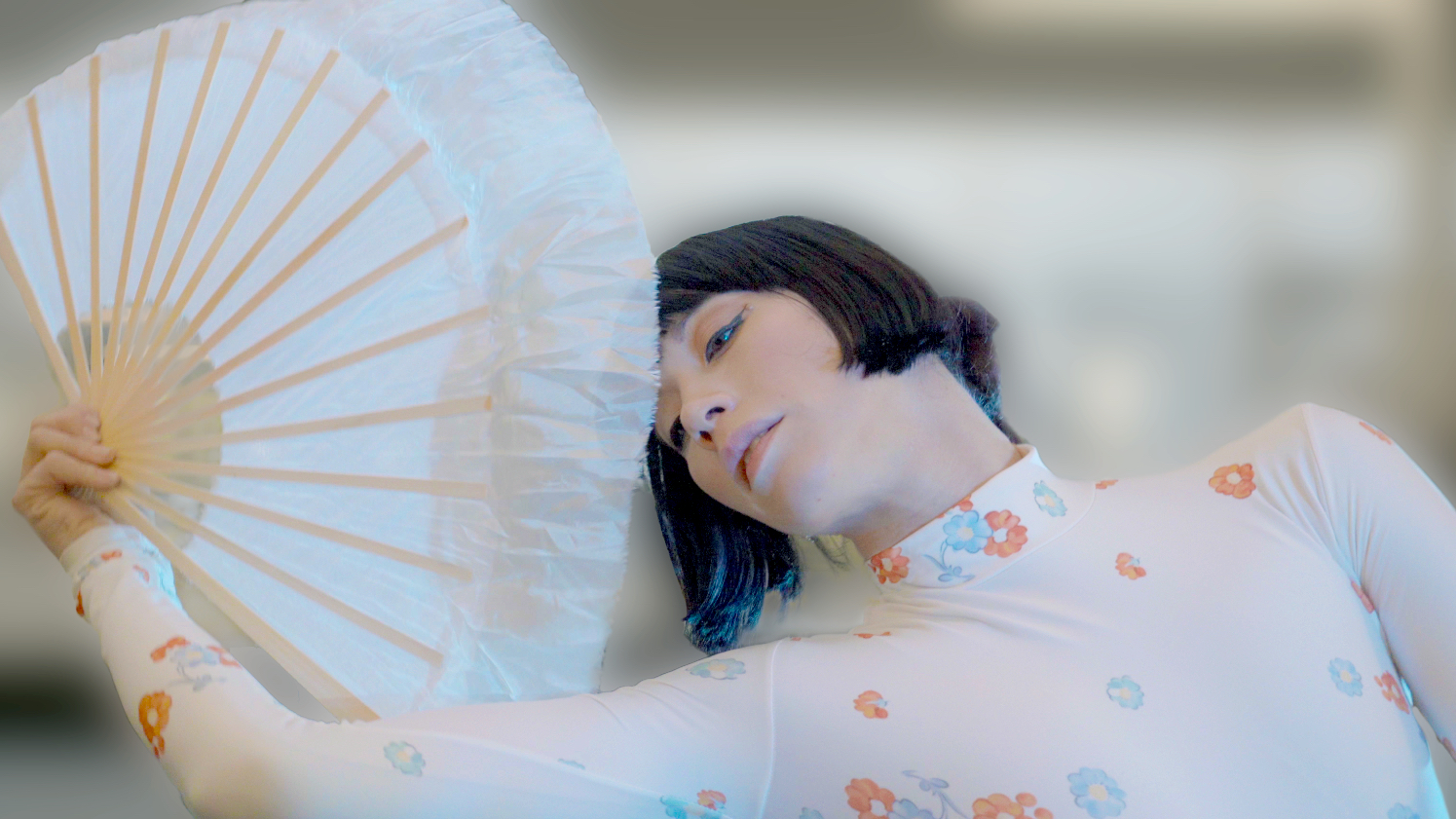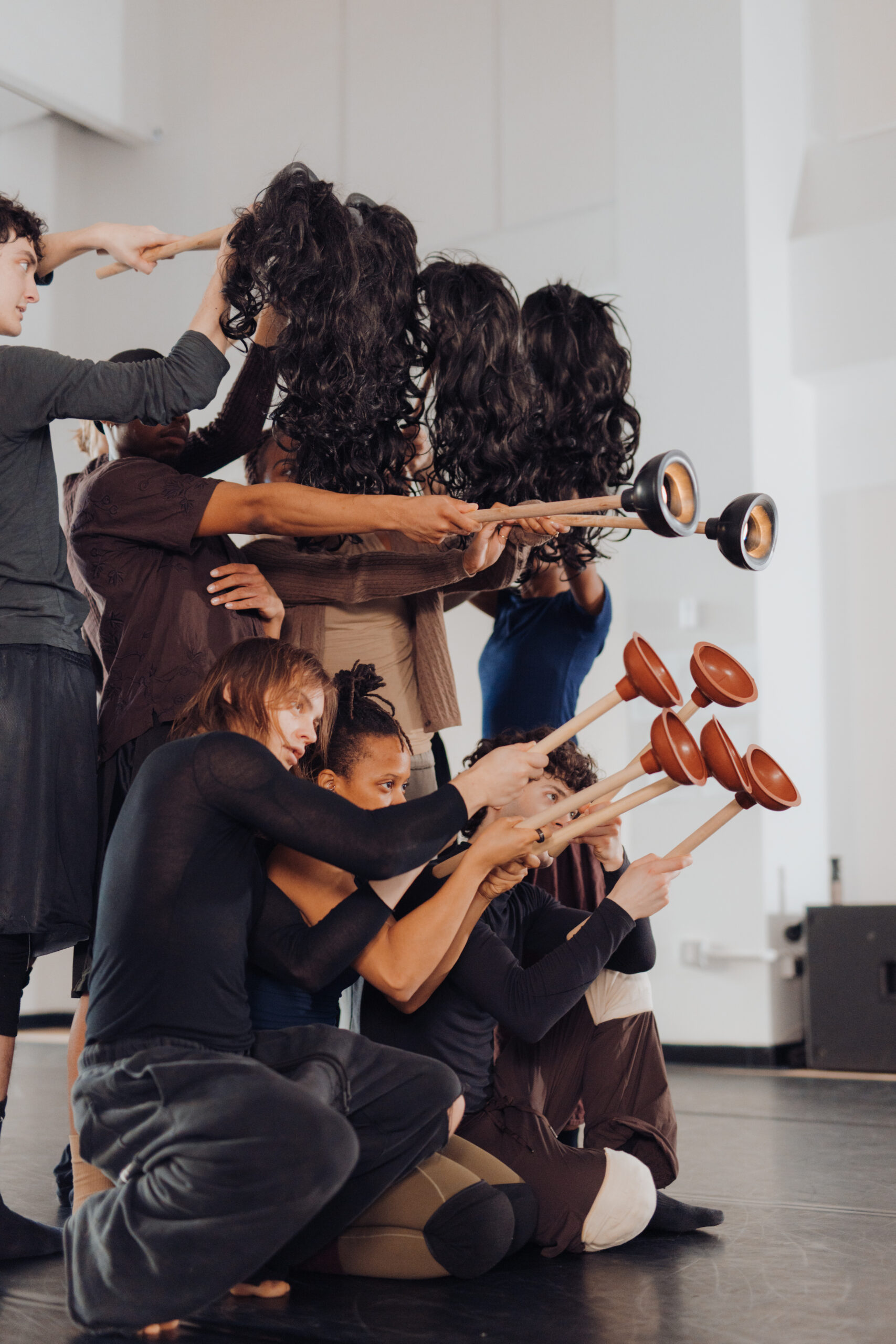American Realness, a dance and performance festival in New York, just closed its eighth season, running January 5-12, 2017. According to festival founder, curator, and producer Thomas Benjamin Snapp Pryor, AR is “a festival that aims to illuminate authenticity and critical examinations of American-ness.” I saw several shows on Friday January 6th at Abrons Arts Center; below are my responses to works by Jen Rosenblit (NY/Berlin) and Dana Michel (Montreal).
First on my schedule was Clap Hands by Jen Rosenblit. I know Jen: she performed at my space in 2014 and we presented work on the same program at Dance New Amsterdam in New York earlier that year. I know that her work, which deals overtly with the human body, also mirrors it: unapologetic, raw, and deadly serious in its absurdity.
Clap Hands began with four performers in the space, the audience seated on four sides. Jen rapidly delivered a long monologue, her face held in a scowl. Admanda Kobilka, credited as both a performer and sound designer (aka snoggybox); effie bowen;* and alexia welch* performed simple tasks: holding a fuzzy mic boom aloft or arranging and re-arranging piles of pink felt throughout the space. Movement arose and fell away again … shifting weight, reaching arms, roving gazes. effie and Jen were swept into a duet that grew in intensity and complexity. When they finally finished, alexia was at the ready with a spray bottle to cool them off.
The work felt unapologetic in its inaccessibility: I thought I’d never be allowed in to this uber-hipster safe space. The task of carrying many, many pieces of bright pink felt between their bodies consumed the three dancers for much of the second half of the show. There was a lot of doubling back, picking up dropped pieces, some struggle, and a fair amount of audience laughter. Then, a disassembling: the performers dispersed, again rearranging the space, folding and unfolding the larger fabric pieces, and eventually wrapping more and more objects in the space with felt.
Somehow, the carrying of and covering with the felt initiated a seismic but at first undetected shift of affect. The performers were no longer surly, but open, breathy. Jen whisked by me and accidentally brushed my head with a piece of felt; a smile played across her lips when she met my eyes. I experienced a growing awareness of the physical presence of the person sitting next to me—her heat, her breath; this evolved into an attention towards all the bodies in the room. After the show, I nodded in satisfaction as I read Jen’s program note in the festival guide: “Clap Hands is something we have to sit alone with, to recall being together.” Clap Hands reminded me that any attempt at being together is a process, involving memory and the passage of time as well as presence.
In Dana Michel’s solo work Mercurial George, she entered the space crawling, topless, wearing white tights and sneakers. The movement was arduous, she related to the many objects in the space with a forced awkwardness. Each muscle and sinew in Dana’s beautifully expressive, strong back articulated and strained under her exaggerated effort to uncover a microphone under a tarp, to pierce a bag of rice with an overly long fork and scatter its contents around the space, to come eventually to standing.
More and more disparate, indeed mercurial images were juxtaposed as she donned a mask, a “wig” of dreadlocks (apparently real hair, and hers, a friend told me after the show), and a turban. Standing behind a podium lit by only one small light clipped to the front, she “lectured” in a distorted sing-song: “Whip that frothy … salty milky … salt in the butter froth yes ….” Later she resumed her movement across the space, again marked by awkwardness and effort—leaning on a wheeled table, pushing it, then carrying it to show that her previous reliance on the table was by choice. Her body was pitched forward, distorted, twisted, never straight, never relaxed, never “herself.” But, of course, always obviously herself: who else could she be?
Mercurial George functions metonymically,** calling on one body (Dana’s) and a series of fleeting and constructed images to signify the multiplicity of identities that an individual is called on constantly to become. My thoughts turned to the words we use to describe bodies that struggle and, in particular, the ways we mark different bodies, different identities, as “invalid.”
American Realness presents art that provides crucial alternatives to mainstream cultural models. If art is a mirror held up to its spectator, then these artists are holding us in thrall to our own image even as we struggle to create it. Americans and people across the planet are faced with a complicated, heterogeneous, and multiplicitous “self” that feels anything but collective. It takes being together to recall that we are, indeed, together. Messy and uncomfortable as that may be.
American Realness, New York City, Jan. 5-12.
*effie bowen and alexia welch’s names are both presented with lower case letters in program notes.
**For a fitting description of the difference between metaphor and metonymy illustrated in this work, please see Ramsay Burt, Judson Dance Theater: Performative Traces (Routledge, 2006), p. 17.
